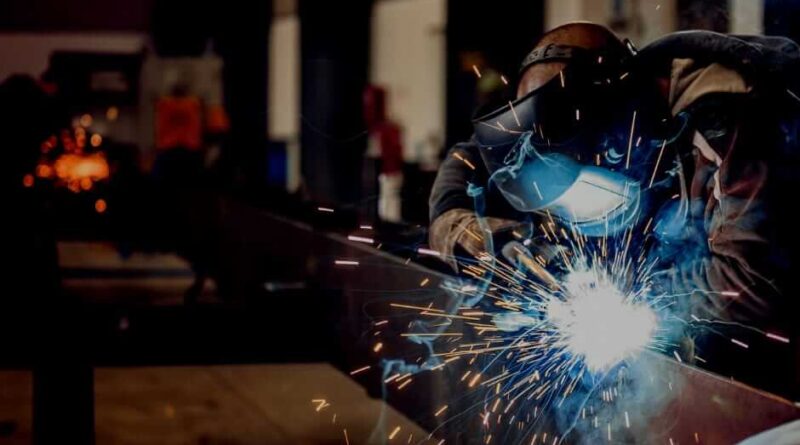Flux-Cored Arc Welding (FCAW): An In-Depth Guide
Flux-Cored Arc Welding (FCAW) is a welding system that is taken the enterprise by means of storm. Known for its efficiency and versatility, Flux-Cored Arc Welding is a pass-to approach for plenty specialists. But what makes it so unique? Let’s dive into the info and explore why Flux-Cored Arc Welding is a staple inside the welding world.
What is FCAW?
FCAW stands for Flux-Cored Arc Welding. It’s a procedure that makes use of a non-stop tubular cord filled with flux. This flux center generates the essential gas defensive to shield the weld pool from contaminants. Essentially, Flux-Cored Arc Welding combines the exceptional elements of MIG and stick welding.
History of FCAW
FCAW became advanced in the Fifties as an alternative to shielded steel arc welding (SMAW) and fuel metallic arc welding (GMAW). Initially, it was designed to improve productivity and satisfactory in the welding industry. Over the many years, advancements have subtle Flux-Cored Arc Welding , making it more reliable and green.
Types of FCAW
Self-Shielded FCAW (FCAW-S)
FCAW-S does now not require an outside shielding gasoline. The flux middle itself presents the essential safety. This makes it perfect for outdoor and windy conditions.
Gas-Shielded FCAW (FCAW-G)
FCAW-G, on the other hand, uses an outside protecting fuel, usually carbon dioxide or a combination of argon and carbon dioxide. This type is often used in industries wherein a cleanser weld is necessary.
How FCAW Works
The procedure involves feeding a continuous wire via the welding gun, where it contacts an electrode and melts to form a weld. The flux inside the twine reacts to produce a protecting fuel, protective the molten metal from atmospheric contamination. Key gadget includes a welding system, twine feeder, and energy supply.
Advantages of FCAW
One of the primary advantages of Flux-Cored Arc Welding is its excessive welding speed, which will increase productivity. It’s also flexible, capable of welding thick and skinny substances. Moreover, FCAW may be more cost-effective than different welding strategies due to decreased exertions fees and material waste.
Disadvantages of FCAW
However, Flux-Cored Arc Welding isn’t always without its drawbacks. There’s a capacity for slag inclusion, which can compromise weld integrity. The gadget may be high-priced, and the procedure produces greater smoke and fumes than other methods, necessitating appropriate ventilation.
Applications of FCAW
Construction Industry
In shipbuilding, FCAW is favored for its speed and the strong welds it produces, crucial for the structural integrity of ships.
Pipeline Welding
For pipelines, Flux-Cored Arc Welding provides the strength and durability needed to handle high pressures and harsh environments.
Repair and Maintenance
It’s also a go-to method for repair and maintenance tasks, thanks to its versatility and reliability.
FCAW vs. Other Welding Techniques
Comparison with MIG Welding
MIG welding requires a separate shielding gas, making it less suitable for outdoor use compared to FCAW-S.
Comparison with TIG Welding
TIG welding, while providing higher precision, is slower and requires more skill than Flux-Cored Arc Welding .
Comparison with Stick Welding
Stick welding is more portable but doesn’t offer the same level of efficiency and speed as Flux-Cored Arc Welding .
FCAW Equipment and Setup
To get started with Flux-Cored Arc Welding , you’ll need a welding machine, wire feeder, and a power source. The setup is crucial for ensuring a smooth welding process and achieving quality welds.
FCAW Wires
There are different types of flux-cored wires, each suited for specific applications. Choosing the right wire depends on the material you’re welding and the desired properties of the weld.
Safety Precautions in FCAW
Personal Protective Equipment (PPE)
Always wear appropriate PPE, including gloves, a welding helmet, and protective clothing to safeguard against burns and UV radiation.
Ventilation and Fume Extraction
Ensure adequate ventilation to deal with the fumes produced during welding. Fume extractors can help maintain air quality in the workspace.
Fire Safety
Keep a fire extinguisher nearby and clear the area of flammable materials to prevent fire hazards.
Troubleshooting FCAW Issues
Common issues with Flux-Cored Arc Welding include porosity, excessive spatter, and poor arc stability. Solutions often involve adjusting the wire feed speed, voltage, and technique.
Future of FCAW
Technological advancements continue to enhance Flux-Cored Arc Welding , making it more efficient and user-friendly. Trends indicate a growing adoption of automation and robotics in Flux-Cored Arc Welding processes.
Conclusion
Flux-Cored Arc Welding is a powerhouse in the welding industry, offering speed, versatility, and cost-effectiveness. While it has its challenges, the benefits far outweigh the drawbacks, making it a preferred choice for many applications.
FAQs
What materials can be welded with Flux-Cored Arc Welding ?
Flux-Cored Arc Welding can weld a variety of materials, including carbon steel, stainless steel, and alloy steels.
How does FCAW differ from MIG welding?
The main difference is that Flux-Cored Arc Welding can use a self-shielding wire, eliminating the need for an external gas supply, which makes it more suitable for outdoor conditions.
Is FCAW suitable for outdoor welding?
What are the most common issues with Flux-Cored Arc Welding ?
Common issues include slag inclusion, porosity, and excessive spatter. These can often be mitigated with proper technique and equipment settings.
How can I improve my Flux-Cored Arc Welding technique?
Improving your technique involves practice, understanding your equipment settings, and staying updated with the latest advancements and best practices in the industry.
Also Visit:
